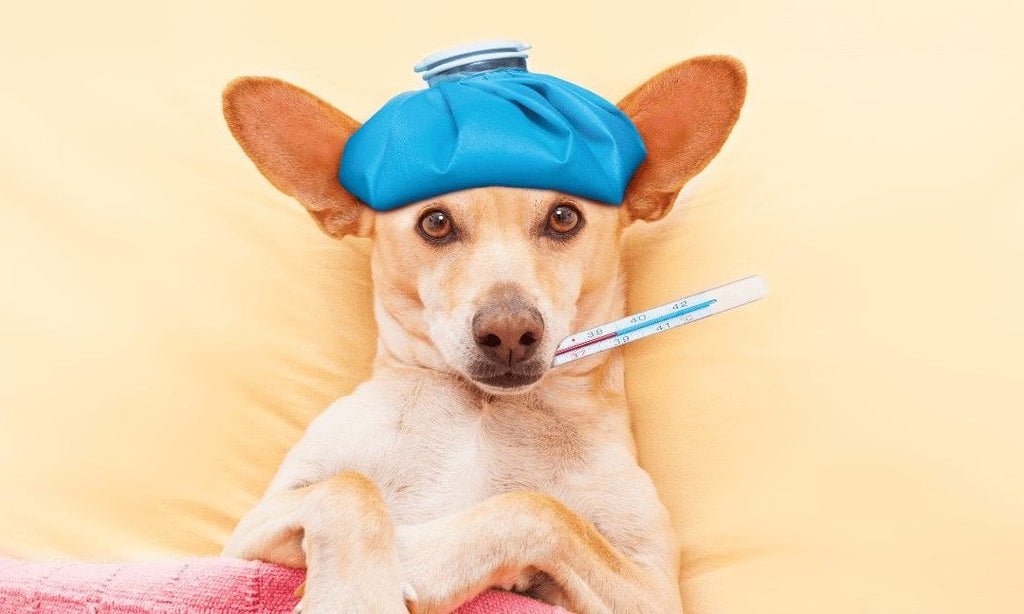
The Ultimate Guide to Keeping Your Dog Healthy and Happy

Every dog owner wants their furry friend to live a long, healthy, and happy life. Proper care, a balanced diet, regular exercise, and mental stimulation are essential to achieving this goal. This comprehensive guide covers everything you need to know to keep your dog healthy and happy, from nutrition to mental health tips.
Nutrition: The Foundation of Good Health Proper nutrition is the cornerstone of your dog's health. Providing a balanced diet tailored to your dog's age, breed, and activity level ensures they get the essential nutrients they need.
- High-Quality Dog Food: Choose a high-quality dog food that lists meat as the first ingredient. Avoid foods with fillers, artificial colors, and preservatives.
- Portion Control: Overfeeding can lead to obesity, which is associated with various health issues. Follow the feeding guidelines on the dog food package and adjust based on your dog's activity level and body condition.
- Hydration: Always provide fresh water to keep your dog hydrated. Dehydration can lead to serious health problems, so ensure your dog has access to clean water at all times.
- Supplements: Consult your veterinarian about adding supplements to your dog's diet, such as omega-3 fatty acids for a healthy coat or glucosamine for joint health.
Exercise: Keeping Your Dog Fit and Active Regular exercise is crucial for maintaining your dog's physical and mental health. Exercise helps prevent obesity, reduces anxiety, and promotes overall well-being.
- Daily Walks: Aim for at least 30 minutes of walking each day. Adjust the duration and intensity based on your dog's breed and energy level.
- Playtime: Interactive play, such as fetch or tug-of-war, is a great way to bond with your dog while providing physical exercise.
- Agility Training: Agility courses are excellent for high-energy dogs, providing both physical exercise and mental stimulation.
Mental Stimulation: Keeping Your Dog's Mind Sharp Mental stimulation is as important as physical exercise for your dog's overall health. Keeping your dog's mind active helps prevent boredom and destructive behavior.
- Training: Regular training sessions keep your dog's mind engaged and improve their behavior. Teach new commands or tricks to challenge their cognitive abilities.
- Puzzle Toys: Invest in puzzle toys that require your dog to solve problems to get treats. These toys are great for keeping your dog occupied and mentally stimulated.
- Socialization: Regular interaction with other dogs and people helps improve your dog's social skills and reduces anxiety.
Routine Veterinary Care: Preventive Health Measures Regular vet visits are essential for monitoring your dog's health and catching potential issues early.
- Vaccinations: Keep your dog up to date with vaccinations to prevent diseases.
- Flea and Tick Prevention: Use flea and tick prevention products to protect your dog from parasites.
- Dental Care: Regular dental check-ups and cleanings prevent dental disease, which can lead to other health problems.
Grooming: Maintaining Hygiene and Health Regular grooming keeps your dog clean and healthy, reducing the risk of infections and skin issues.
- Brushing: Brush your dog's coat regularly to remove loose hair and prevent matting.
- Bathing: Bathe your dog as needed based on their breed and activity level. Use dog-specific shampoo to avoid skin irritation.
- Nail Trimming: Keep your dog's nails trimmed to prevent overgrowth and associated pain or injury.
Conclusion: Keeping your dog healthy and happy requires a holistic approach, combining proper nutrition, regular exercise, mental stimulation, routine veterinary care, and grooming. By following these guidelines, you can ensure your furry friend enjoys a long, healthy, and fulfilling life.
FAQs:
- How often should I take my dog to the vet? At least once a year for a routine check-up, but more frequently if your dog has health issues.
- What are some signs of a healthy dog? Bright eyes, a shiny coat, a healthy appetite, and regular bowel movements are good indicators.
- How can I tell if my dog is getting enough exercise? A well-exercised dog will be calm and relaxed at home, rather than restless or destructive.






